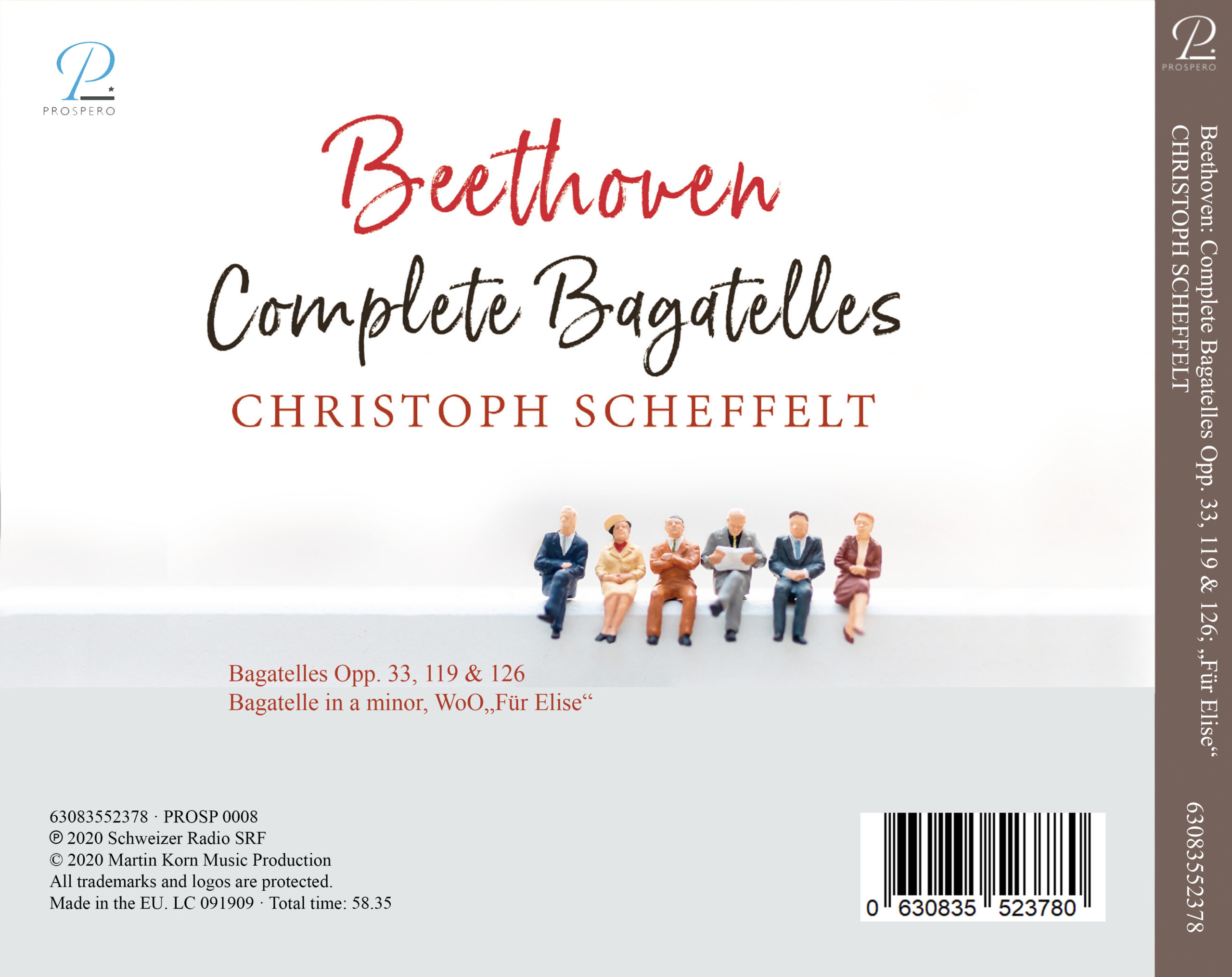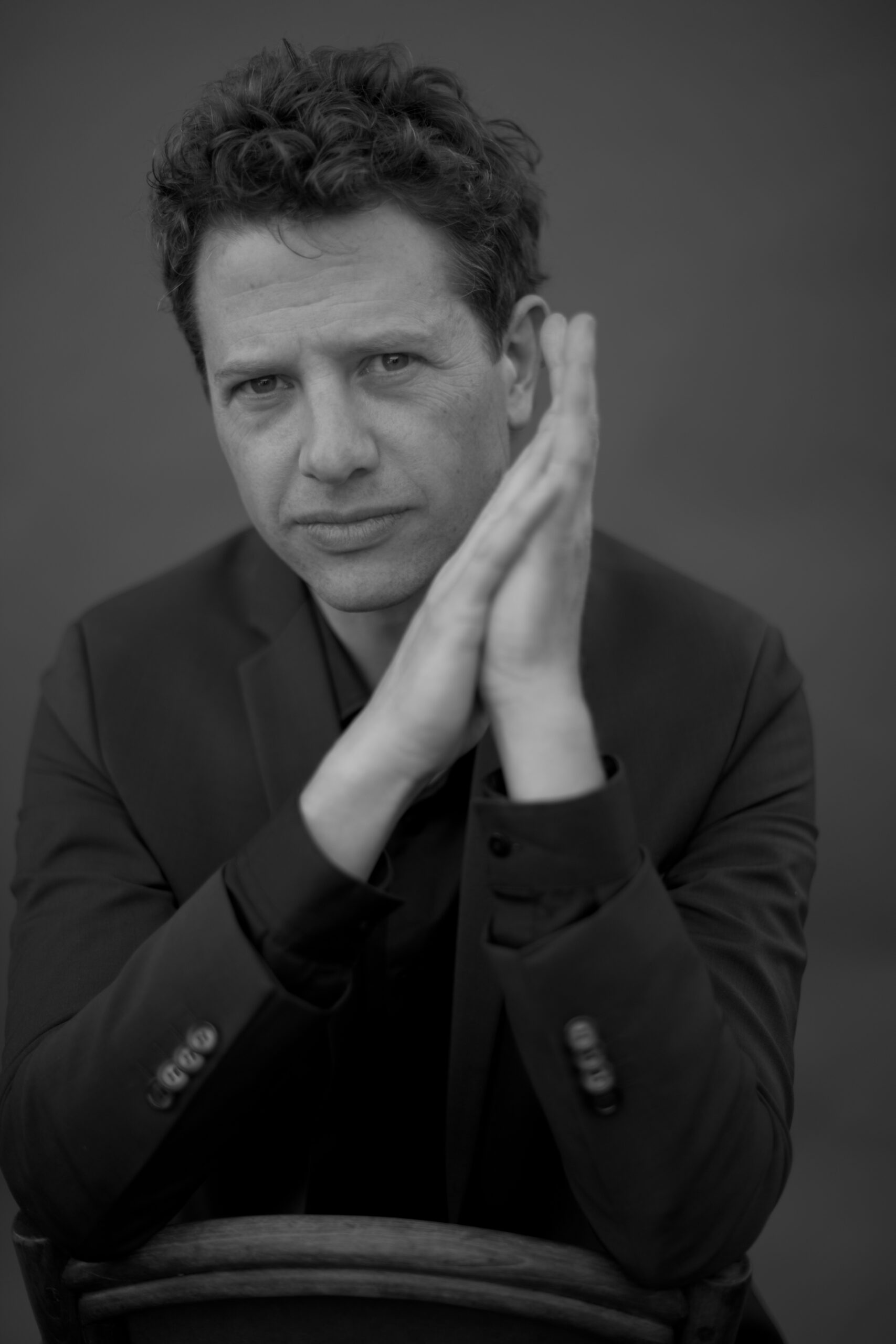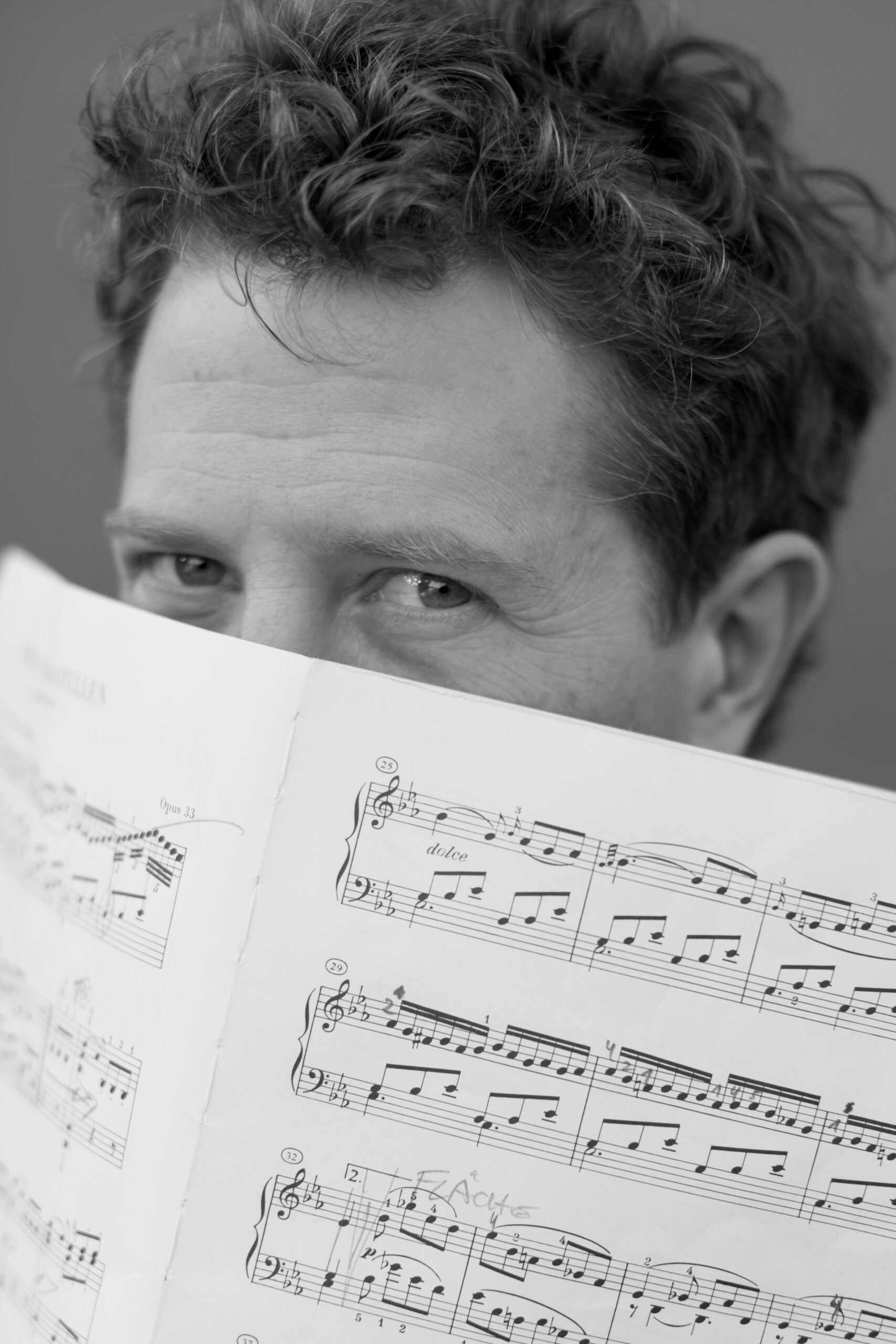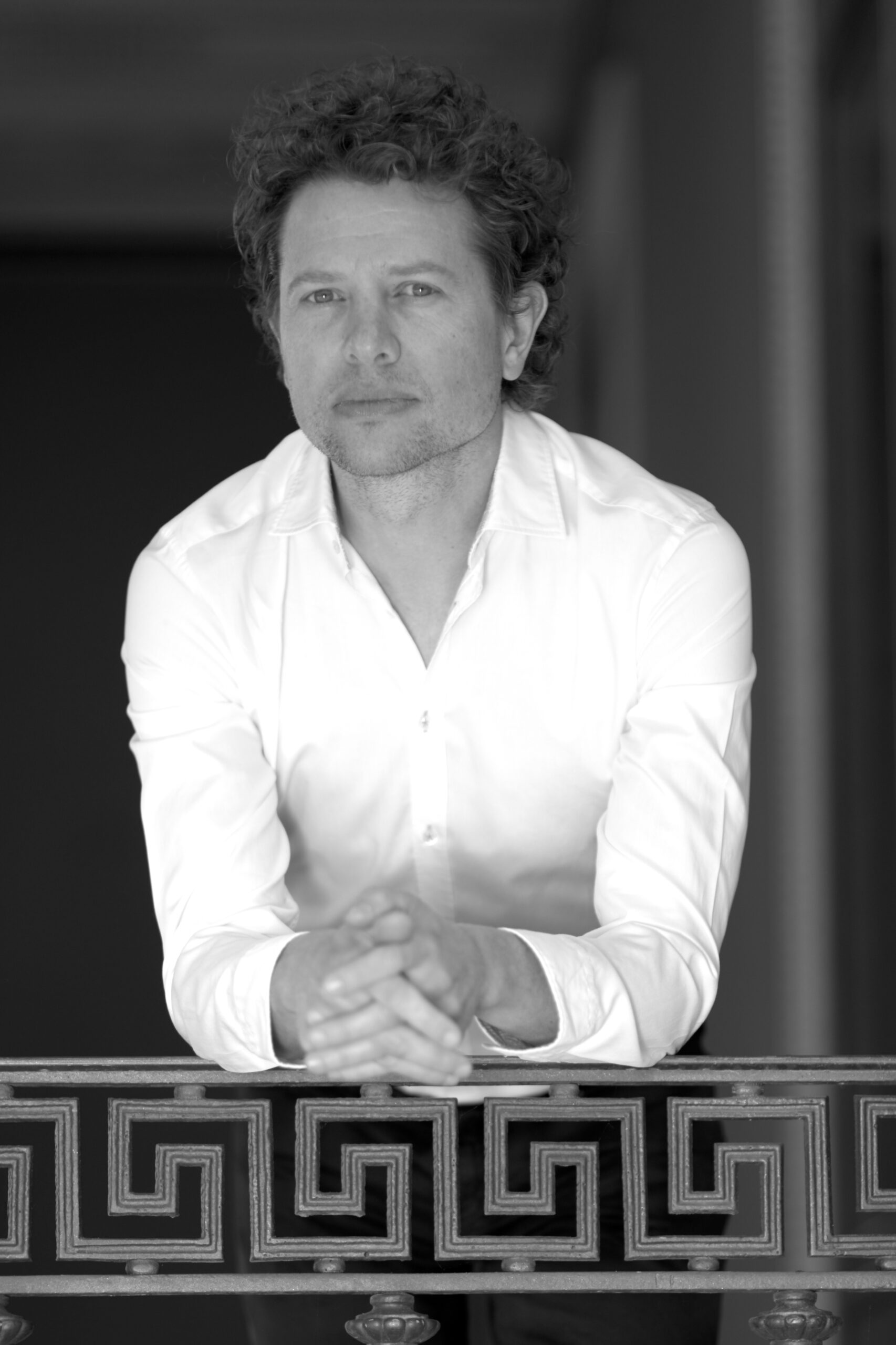Christoph Scheffelt: Beethoven – Für Elise, Complete Bagatelles
Christoph Scheffelt: Beethoven – Für Elise, Complete Bagatelles
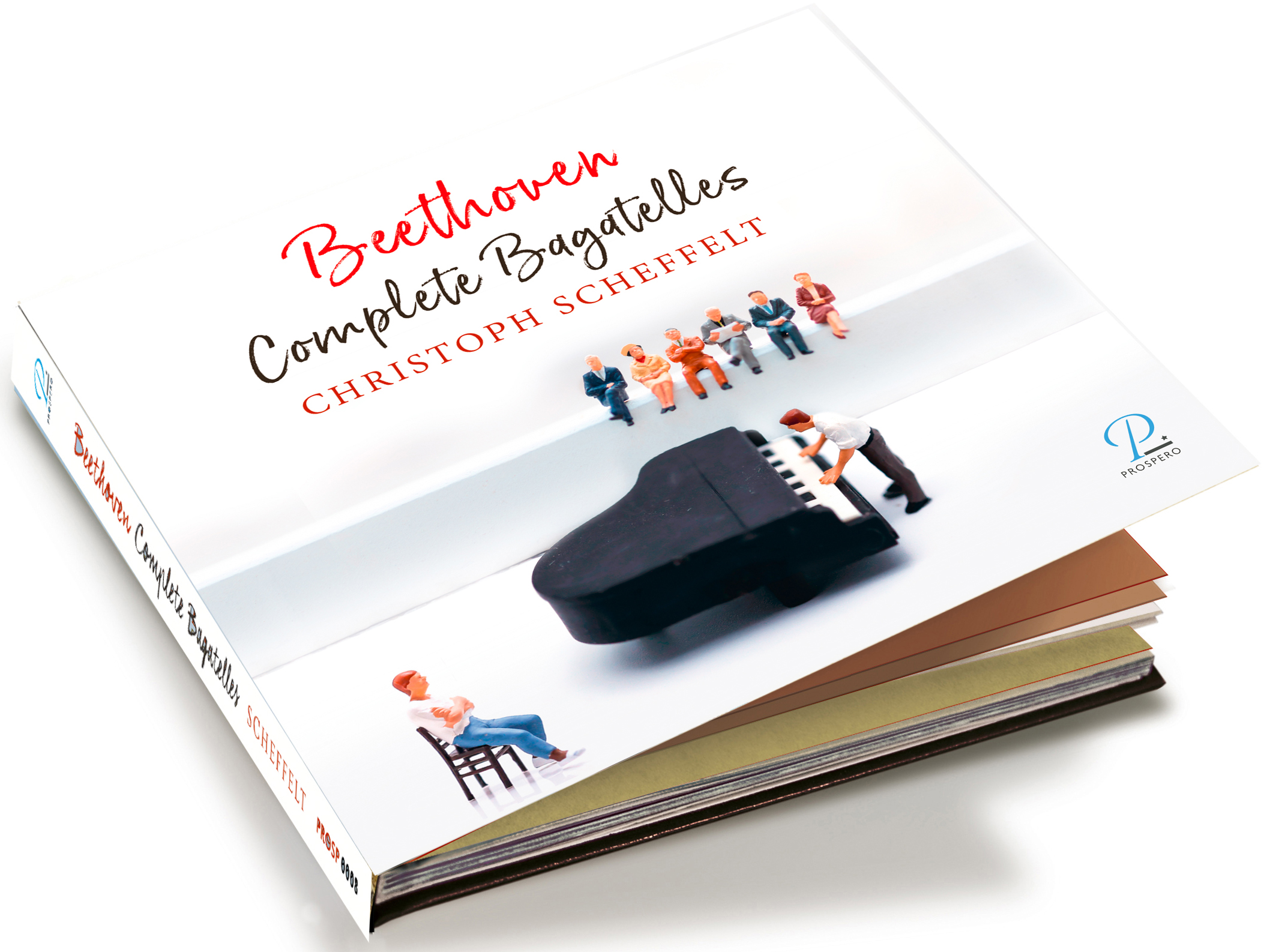
About New Album
Ein Genie ist auch in seinen Kleinigkeiten interessant. Und was nach außen hin klein wirkt, muss es nicht unbedingt sein. So gehören die Bagatellen zu den bemerkenswerten Klavierwerken von Ludwig van Beethoven.
„Vive la Bagatelle! – Von einem großen Mann ist alles interessant, und die Kleinigkeiten desselben sind es nicht am wenigsten.“ Diese Äußerung von Jean Paul hätte gut und gern auf Ludwig van Beethoven und seine Bagatellen gemünzt sein können. Jedenfalls bestärkt sie Zweifel daran, dass es sich bei den Klavierstücken op. 33, 119 und 126 nur um Nebenprodukte handelt, die bei der gedanklichen Anlage der großen Sonaten und Variationszyklen entstanden sind.
Allein, dass Beethoven die Stücke mit Opus-Zahlen versah, sie also in die „Liste meiner großen Werke“ aufnahm, legt eine andere Wertung nahe. Demnach käme den Bagatellen zwar nicht der Rang von „Hauptwerken“ zu, wohl aber wäre ihnen eine eminent wichtige Funktion im Schaffen des Komponisten zuzumessen: des Erkundens von schöpferischen Freiräumen, des spielerischen Erprobens innovativer Lösungen in kleinem Format.
Dabei weist jede einzelne Bagatelle ihre ganz eigene musikalische Charakteristik auf, und das Spektrum reicht vom lyrisch-liedhaften Kantabile über den mal elegant-schwingenden, mal urwüchsig-derben Tanz bis zum robust-motorischen Presto. Anmut und Zorn, Witz und Melancholie, Sanftes und Schroffes treffen unvermittelt aufeinander, stehen im Widerstreit miteinander.
Da ist für jedes musikantische Naturell etwas dabei: für feinsinnige Klangpoeten, für provozierende Exzentriker, für nobel-brillante Virtuosen und für kühne Avantgardisten. Der Pianist Christoph Scheffelt versucht in seinem Ansatz eine Synthese aus all diesen Interpretationsansätzen zu finden und für jede Bagatelle den jeweils adäquaten, individuellen, Ton zu treffen.
Dabei ist es ihm wichtig, dass in manchen Details sogar künftige musikalische Entwicklungen antizipiert werden. Wenn Beethoven sich mit der von ihm als „zyklisch“ beglaubigten Werkgruppe op. 126 von seinem Instrument, dem Klavier, verabschiedete, so war das gleichzeitig eine Zäsur, ein Aufbruch zu neuen Gipfeln im weiteren Spätwerk des Komponisten.
Der deutsch-chilenische Pianist Christoph Scheffelt, der als ausgewiesener Beethoven-Spezialist gilt, wurde 1981 in Santiago de Chile geboren. Seine Ausbildung beendete er als Meisterschüler von Prof. Homero Francesch an der Zürcher Hochschule der Künste. Christoph Scheffelt ist u.a. Träger des renommierten Rahn Musikpreises, des «Claudio Arrau» Preises, sowie des Werner und Berti Alter-Preises für Pädagogik. 2008 debütiert er in der Tonhalle Zürich unter der Leitung von Howard Griffiths mit dem 1. Klavierkonzert von Ludwig van Beethoven.
Ludwig van Beethoven: Bagatellen opp. 33, 119 & 126 | Bagatelle in a-Moll, WoO 59, «Für Elise»
A genius is also interesting in his little things. And what seems small on the outside, it does not necessarily have to be. Thus the Bagatelles are among the remarkable piano works of Ludwig van Beethoven.
«Vive la Bagatelle! – From a great man everything is interesting, and the trifles of the same are not the least of it.» This statement by Jean Paul could well have been applied to Ludwig van Beethoven and his bagatelles. In any case, it reinforces doubts that the Piano Pieces op. 33, 119 and 126 are only by-products of the intellectual arrangement of the great sonatas and variation cycles.
The mere fact that Beethoven provided the pieces with opus numbers, thus including them in the «list of my great works», suggests a different evaluation. According to this, the bagatelles would not have the rank of «major works», but they would have an eminently important function in the composer’s work: the exploration of creative freedom, the playful testing of innovative solutions in a small format.
Each individual bagatelle has its own unique musical characteristics, and the spectrum ranges from the lyrical-song-like cantabile to the sometimes elegantly swinging, sometimes primeval-dark dance to the robust-motor Presto. Grace and wrath, wit and melancholy, soft and brusque suddenly meet and clash with each other.
There is something for every musical temperament: for subtle sound poets, for provocative eccentrics, for noble and brilliant virtuosos and for bold avant-gardists. In his approach, pianist Christoph Scheffelt tries to find a synthesis of all these interpretative approaches and to find the appropriate, individual tone for each bagatelle.
It is important to him that in some details even future musical developments are anticipated. When Beethoven said goodbye to his instrument, the piano, with the group of works op. 126, which he certified as «cyclic», this was at the same time a caesura, a departure for new peaks in the composer’s later works.
The German-Chilean pianist Christoph Scheffelt, who is considered a proven Beethoven specialist, was born in Santiago de Chile in 1981. He completed his education as a master student of Prof. Homero Francesch at the Zurich University of the Arts. Christoph Scheffelt has received the renowned Rahn Music Prize, the «Claudio Arrau» Prize, and the Werner and Berti Alter Prize for Pedagogy. In 2008 he will make his debut at the Tonhalle Zurich under the direction of Howard Griffiths with the 1st piano concerto by Ludwig van Beethoven.
Ludwig van Beethoven: Bagatelles Opp. 33, 119 & 126 | Bagatelle in A minor, WoO 59, «Für Elise»





